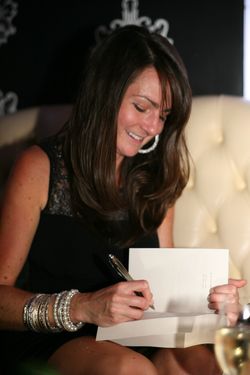While this week has proven to be filled with interesting discourse on the current state of self-publishing, some counterarguments just write themselves. Or, in this case, they get written by a staffer for The Guardian, Alison Flood, when she interviewed author Polly Courtney.
Courtney had at one point been one of many authors who represented the success stories coming from the industry. After self-publishing two novels, she signed a deal with HarperCollins, only to discover the reality did not live up to the dream. As she explained to Flood for the piece, which has been written for inclusion in The Guardian’s ongoing series on self-publishing, the negative aspects such as loss of control over her covers and the publisher’s insistence on squashing her work into pre-existing molds like chick lit or “misery lit” (whatever that may be), made her question the entire process.
The frustration was compounded by the fact that HarperCollins had no promotional budget in mind for Courtney’s work. She was still responsible for all of her own promotion, much as she was when she was a self-published author, only this time she was promoting works that she didn’t feel good about while giving up a percentage of the royalty in the process.
In the article, Courtney made the following statement which resounds for self-published authors: “The term ‘self-publishing’ is a misnomer; it doesn’t mean that the author takes on all the parts of the publishing process as well as the writing. The author orchestrates the editing, cover design, production, distribution and promotion, but doesn’t need to do all of them. In fact, there are certain things that a self-publisher shouldn’t do: namely editing and cover design. What I love about self-publishing is the ability to carefully choose those third parties and to work directly with them, instead of being at the end of a long chain of faceless entities in a publishing house, many of whom have not read your work. It has been a really fulfilling experience, liaising with both my editor and my designer to craft something we’re all proud of.”
But when asked about the downside of self-publishing, the author had this to say: “The problem with self-publishing is that it’s very easy to do badly. Too many authors miss out important steps like editing, cover design and promotion, which gives self-publishing a bad name. Right now, it’s hard for readers to find decent content without resorting to traditional filters (book store charts, prize winners, newspaper reviews), which are mainly served by the big publishing houses with existing big-name authors. To get yourself heard above all the white noise is increasingly difficult and coupled with that is the issue that readerships are fragmenting, so you have to work harder to reach an ever-smaller audience. But that’s the challenge. I love a challenge.”
For more discussion on the issues that still plague self-publishing, please join GoodEReader staffers tonight for a live video Spreecast at 9pmET, which can be found on the Spreecast homepage at that time or by clicking the link HERE.

